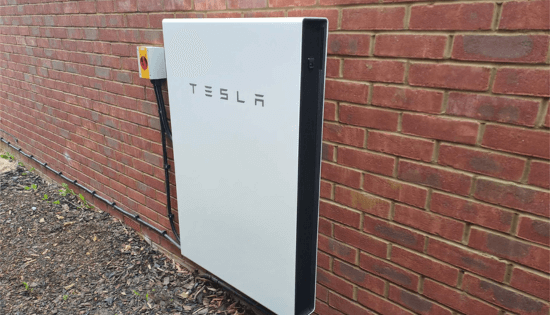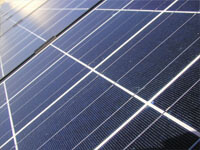Your guide to the economics of solar panels and batteries in the home

Are Solar Panels A Good Investment?
Are solar panels worth it?
If you could invest in something with better returns than an ISA, whilst simultaneously being great for the environment, you’d do it, right? Well, it might sound too good to be true, but that’s exactly what getting a solar roof for your home will do.
Purchasing solar panels is obviously a substantial expense. It needs to be considered carefully, but because solar panels are warrantied for 25 years, and may last even longer, they could be providing you with financial benefits well into old age.
In this technical guide, we’ll explain how you can earn money from solar panels, what your return on investment will be, and the factors that maximise these benefits.
A typical payback of 8 years
Tripling your money over 25 years
Like a bank account earning 5% per year
The pleasure of generating your own electricity
It’s great for the planet too!
How do solar panels save money?

There are two financial benefits from owning a solar PV system on your home.
When you generate your own electricity, there are two things that can happen.
- If you use the electricity yourself, you don’t need to buy that electricity from your supplier anymore. That means you’ll see a reduction on your electricity bill because you are buying less. Historically, you’d have saved 15p for every kWh of solar power used, but after the energy crisis of 2021, you’ll now be saving about 30p/kWh under the new energy price cap.
- If you don’t use the electricity yourself, it will be exported back to the grid. Your electricity supplier will purchase that electricity from you and then sell it on to someone else! Your supplier has to buy this electricity from you.
Using the electricity yourself is usually more valuable than exporting it, so it’s best to use your generation in the home. Here’s how you can get the most from your solar.
The Smart Export Guarantee (SEG)
In 2019, the Government introduced the Smart Export Guarantee. This allows different electricity suppliers to set their own rates for how much they will pay you for your exported electricity.
Prices vary massively from 1p/kWh up to 20p/kWh, so it’s really important to shop around. The UK trade body, Solar Energy UK, publish a handy guide to smart export guarantee rates, which you can find here.
If you have battery storage as part of your home energy system, then the Octopus Flux tariff pays even higher rates for exporting electricity at peak times in the evenings. This is the optimal way to maximise the income from your roof.
How much do solar panels save?
In order to understand the benefits of solar panels, we need to compare the costs of a solar PV system to the income streams it generates over time. It’s important to appreciate that the costs of a solar roof are virtually all up-front (maintenance costs are very low), whilst the benefits are received over many years into the future. Whether you perceive this to be a good deal or not will depend on how you view expenses today versus income in the future.
The financial benefit of any project is dependent on a wide range of factors, which we’ll talk about more below. The best way to understand the economics in your particular case is to request a free quotation for your property. Our engineers will assess your roof via Google Earth without the need for a site survey, and they can produce an initial design and price for you. We’ll outline the economics of your project for you, so you can make up your own mind.
For any project, the financial profile over time will look like this.


You will often see financial benefits of a solar roof expressed in a number of different ways, which we explain below.
What is the payback of a solar roof?
The cost of a solar roof is all up front, so it takes some time for the financial benefits to recoup the initial outlay – this is called the payback period. For a residential solar roof, the payback period is typically 7 years, but may range between 5 and 15 years depending on your personal circumstances.
What is the lifetime profit of a solar roof?
The lifetime profit is usually calculated at the end of the 25-year warrantied lifetime, and is the total amount of profit you have earned over that period. The lifetime profit is usually 1-3 times the initial cost of the system. That means if you spend £10,000 on a solar roof, you will earn this back and then make between £10,00 and £30,000 profit over 25 years. Of course, the panels will keep on working after this point earning you even more money!
What is the rate of return on investment for solar?
Imagine that instead of buying a solar roof, you put the funds into a bank account instead. The rate of return on investment is the interest rate that bank account would have to pay to be equivalently profitable.
The rate of return on investment for a home solar roof is between 5% and 10% per year – well in excess of even the highest paying ISAs.
Balancing the rate of return and lifetime profit
There is sometimes a trade-off between rate of return and lifetime profit, depending on the components chosen. For example, high-efficiency panels are slightly more expensive but produce more electricity and income. Compared to lower efficiency options, these would have a greater income, but lower rate of return.
Our advice? There’s no right or wrong here, but it’s useful to ask yourself whether you are trying to maximise your income from your solar roof, or maximise how hard your expenditure is working for you.
Levelised Cost of Electricity
You will sometimes see a calculation of the cost of electricity produced. This is simply the cost of the solar roof divided by the amount of electricity expected to be generated over 25 years.
For residential solar PV systems, the cost of generated electricity is typically 8-12p/kWh. Compare this to buying electricity from your utility. It’s miles lower! Solar panels really are the cheapest way of providing electricity to a building.
Our engineers provide free desktop quotations so you can understand the benefits of solar on your specific property
What affects the economics of a solar roof?
Lower cost
Lower cost installations will result in better economics overall. We’ve written about what influences the cost of a PV system in more detail here, but in summary:
- Economies of scale mean larger roofs are cheaper than smaller ones
- Tiled or metal roofs are cheaper than slate or flat roofs
- Fewer storeys require less scaffolding than higher buildings
- Single roofs are cheaper than multiple roof aspects
- Unobstructed roofs are cheaper than cluttered roofs.
Solar Generation
The more electricity you generate the better the economics will be.
- The south of the UK is sunnier than the north
- Unshaded roofs produce much more than shaded roofs
- South facing is better than east or west facing, although this is fairly marginal.
The percentage of electricity used on site
Using your own generation is more valuable than exporting it, so the percentage of electricity used on site (also called self-consumption) is critical to the economics. A typical home will use 30% of the electricity they generate directly. However, if you’re at home during the day – be that retired, working from home or childcare – this can go up to 40-50%. Installing a battery alongside solar can increase this to 70% – see below for how batteries affect the economics of a solar array.
The percentage of electricity used at home can also be increased by charging an electric car with chargers like the Zappi, or by diverting electricity into a hot water tank immersion heater.
The price of electricity
The higher the price of electricity, the more you will save from a solar PV array. We’ve seen the economics of solar improve massively over the course of the energy crisis.
Inflation
Inflation will increase the price of electricity over time, and so increase your savings in future years. If inflation is running high, your savings will go up, and the payback period will come down.
Smart Export Guarantee rate
Although less important than bills savings, getting the best price for your exported electricity will help the economics of your investment.
Is it worth getting a battery with solar panels?
Just like the solar panels, batteries are an additional cost but they offer greater savings over the long-term. And just like solar panels, this trade-off needs to be considered carefully.
A home battery will increase the amount of self-generated electricity you can use on site. As mentioned, it’s financially better to use any self-generated electricity if you possibly can, due to the different prices paid for importing electricity and exporting electricity. A typical home might use 30% of the solar electricity generated. By adding a battery this can increase to around 70%, resulting in additional savings (It’s never 100% as you’ll always be generating more than you can sensibly store in the middle of summer, as we explain here).


So, do these extra benefits outweigh the extra costs? We’ve crunched the numbers and discovered the following:
- At times of higher electricity prices (>20p/kWh, as we have seen since the energy crisis), the income from batteries more than compensates for the cost of the battery.
- At times of lower electricity prices (historically around 15p/kwh), it’s broadly break even, and therefore a matter of personal choice whether you incorporate a battery into your home energy system.
- Advanced time-of-day electricity tariffs like Octopus Flux can improve financial returns by providing times of high export prices. You will need a home battery if you want to ‘play the market’ with these tariffs.
It’s not all money, of course. Many of our customers just like being as self-sufficient as possible. Why buy electricity from a utility when you can use the electricity generated from your own roof?
The economics of a home battery is also highly dependent on choosing a model that’s the right size for your needs. This is a careful match between the size of your solar generation and the amount of electricity you use in the home. If the battery is too large, it won’t be fully used and you’ll have purchased more battery than you need. If the battery is too small, you won’t maximise the savings that would’ve been possible.
For that reason, we strongly recommend against purchasing ‘kit’ systems, and instead get a battery system bespoke designed to your energy use and lifestyle. Our engineers are experts in designing battery systems to ensure you find the ‘Goldilocks zone’, so why not get a free quotation today?
How does a home battery work
Here’s how a battery can boost the amount of generated electricity you can use yourself
Buying a Home battery
Explore our portfolio of high-quality batteries for supersizing your self-sufficiency. All bespoke tailored to your needs.
Tariffs for the Renewable Home
Maximise your savings by pairing your battery with the specialist electricity tariffs that save you more.
Octopus Flux
This tariff is specifically designed to maximise the income from your batteries, by discharging at peak times










